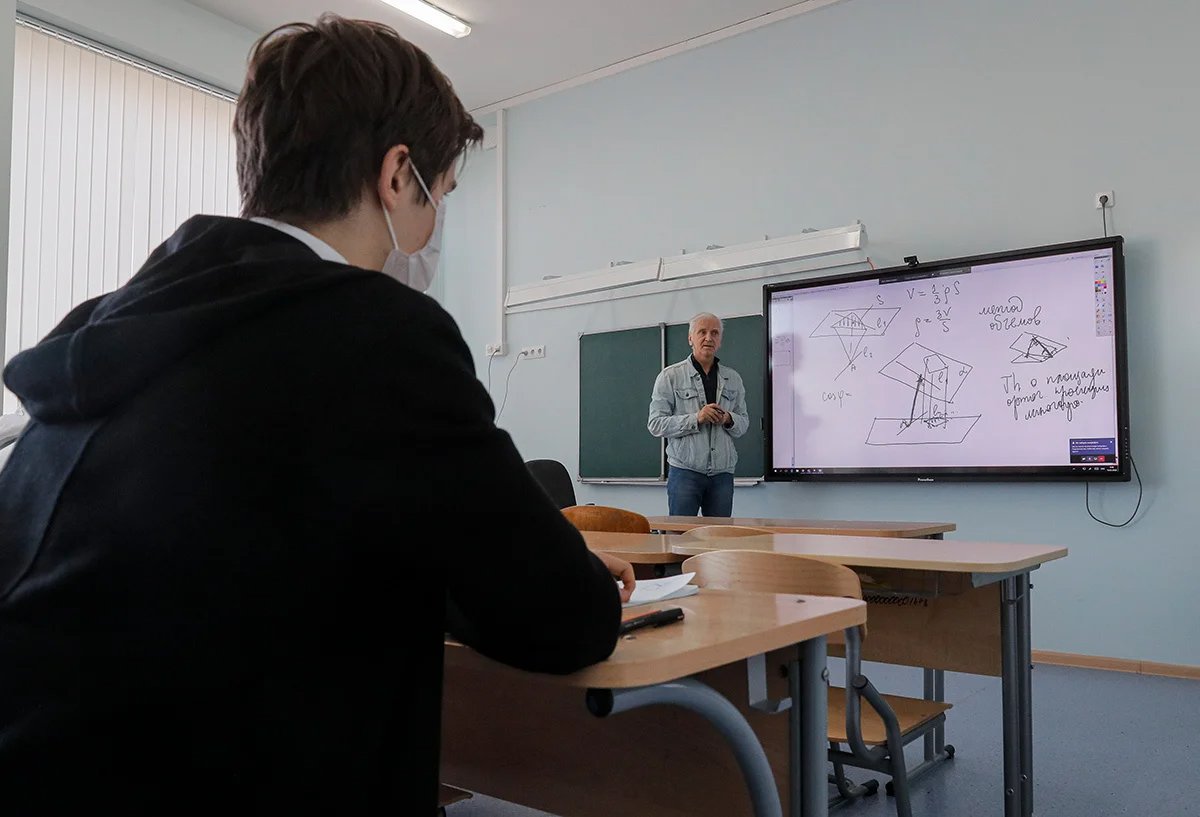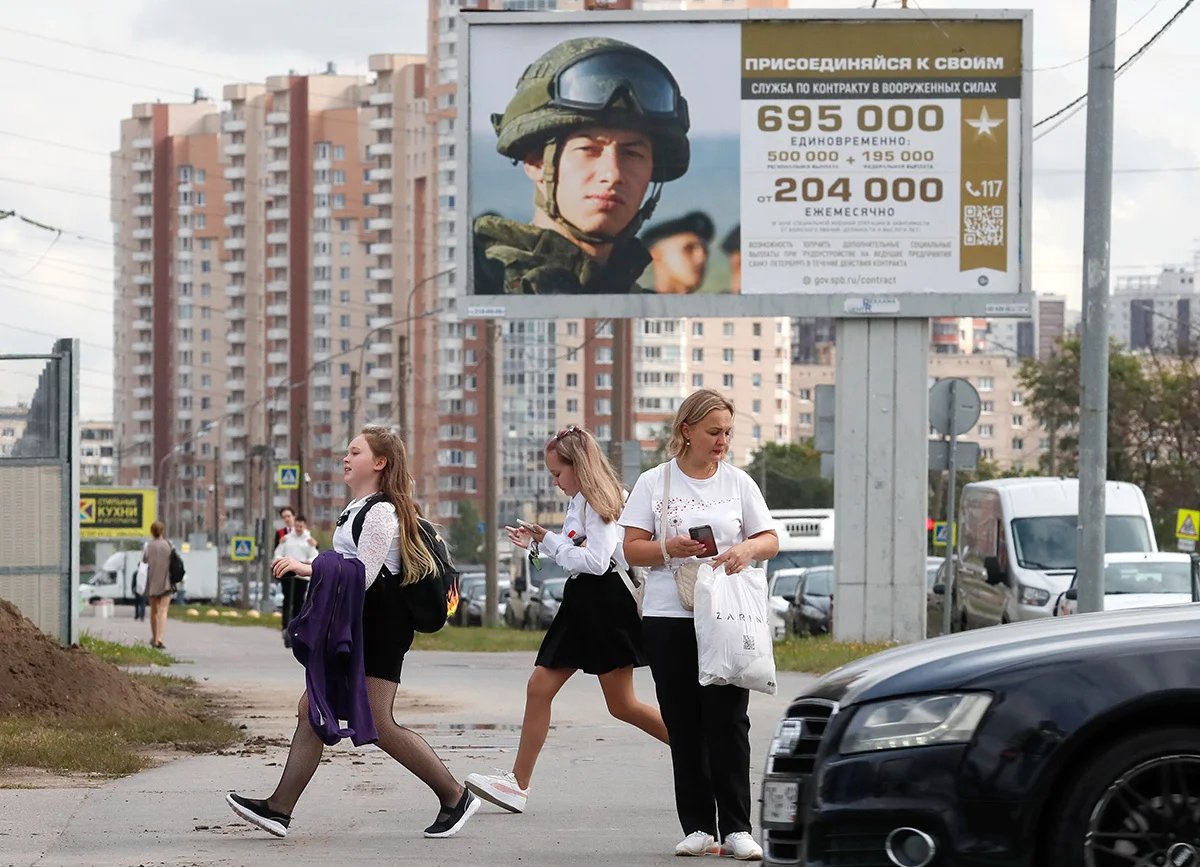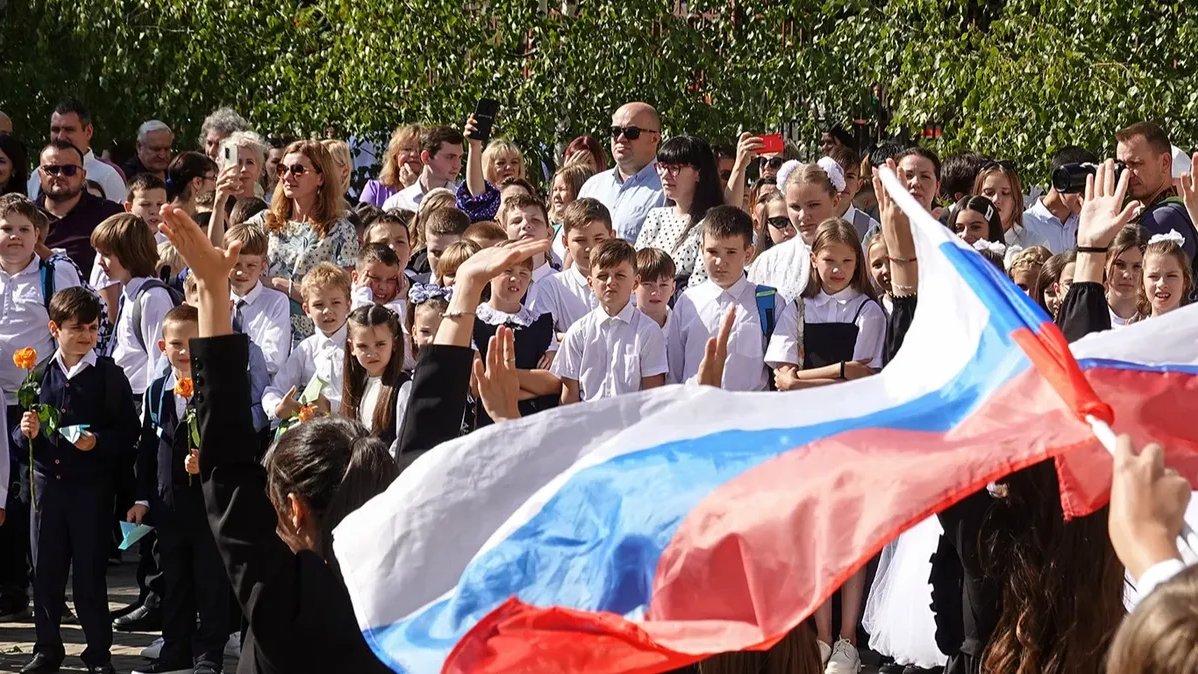Despite last year being declared Year of the Educator by presidential decree, over 190,000 teachers at Russian schools handed in their resignations, just over 14% of the total number employed nationwide and the highest number to do so since 2017, according to the Education Ministry.
In fact, the only year since 2017 that hasn’t seen an increase in teachers leaving their profession was 2020, when schools switched to online teaching during the Covid-19 pandemic. Novaya Gazeta Europe spoke with some of those who resigned about the reasons for their decisions, the difficulties they faced, and what they believe the future holds for Russian education. All names have been changed.
Mikhail, 26, teacher in the Yamalo-Nenets autonomous district
Before I started my job as a school teacher, I taught English privately for several years. After graduating from university, I went to the Yamalo-Nenets autonomous district to work as an English teacher.
I made the decision to resign on the spur of the moment, several days after mobilisation was announced, when I realised I was at risk of being called up. I feared that if I refused to go to the conscription office I could end up in prison — which was a dilemma that I preferred to avoid. I quickly made the decision, packed my bags and left the country. I was very sad to leave my pupils and colleagues: I worked in a wonderful team, and although my pupils sometimes got on my nerves, they were fond of me, and I found it interesting to teach them. Many of my pupils were talented, smart or simply kind-hearted — and I really enjoyed helping them with their creative projects, and making the learning process fun. I still have a photograph from one of my classes in my mobile phone case.
Now I’ve returned to Russia, and I still teach, but privately. I don’t want to go back to teaching in schools: I find the school system too rigid and stressful.
Russian schools have excellent federal state education standards. They have been revised several times, and for the 2021-2022 academic year at least these standards were the equal of modern European schools. They encourage individuality, cooperation, creativity, independence and critical thinking — very good standards.
But in most cases, teachers are constantly pestered by the director of studies, deputy head or teaching supervisors. Teachers are not only required to plan ahead for the year as early as June or July, but they are also expected to stick to their plan rigidly.
Teachers, if they do their job properly, should simply want to teach children, but they are given too many additional responsibilities: inspections on following plans; advanced teacher training (useful but inappropriate for an overworked teacher), holding open lessons, and keeping electronic journals. On top of all of this are the class chatrooms, where children and parents can contact the teacher at any time of day
For these reasons, if we’re talking about a large city school, a teacher’s real working hours are easily twice as long as they’re supposed to be.
Propaganda activities are not as bad as you might think, but the requirement to take part in them takes up even more teacher time and energy.
Only a small percentage of teachers really take the ideological work seriously, but as usual the vocal minority casts a shadow on the silent majority.
The mutual support in the team and the teaching community is one of the more positive factors, at least in my case. You often encounter a friendly, warm atmosphere among your colleagues.
Russian education undoubtedly does have prospects. Technical education in Russia remains at a high level, while language learning is still at a low one. When I was at school, I was always motivated by projects, competitions, speeches — anything important and creative that broke up the routine. From my experience, school pupils currently have good opportunities to travel in Russia and take part in competitions that can ease the university enrolment process. It’s just a shame that some of these competitions are connected with a fraudulent ideology which is passed off as the genuine article.

Photo: Sergey Ilnitsky / EPA-EFE
Alexander, 24, Salekhard
My teaching experience is not very extensive. I studied journalism at university, but in the third year I realised that it wasn’t for me. I decided to become a schoolteacher, something I’d wanted to do since childhood. I discovered the “Teacher for Russia” programme, passed the selection process and in September 2021 I started working as an English teacher at a school in Salekhard in the Russian Arctic.
But in September 2022, all that mobilisation business began: conscription officers came to the school, and started looking for eligible recruits, including me, although I had already been to the conscription office at the beginning of the month, as I was obliged to report there every year. We had been promised that teachers would be given an exemption, but then we were informed that this was not the case. I didn’t morally approve (and do not approve) of the events taking place in the country, and certainly did not want to take part in them. So in the space of one day, I packed my bags, resigned, and left for Kazakhstan — and I haven’t been back to Russia since.
I thought a great deal about whether I would return to the school or not, because I wanted to complete the programme. Under the programme conditions, we were supposed to work for two years. We had a wonderful community. But the actual work at school is far from easy.
Lessons and working with children are an interesting part of the teacher’s work, but I dislike everything else — staff meetings, writing reports and keeping electronic journals.
“Conversations about Important Matters”, mandatory propaganda classes aimed to “boost patriotism” among Russian pupils, were held at our school, but as I wasn’t the head of year, I wasn’t personally responsible for them. I have to say that our principal was very sensible, and she didn’t particularly support these ideological lessons. I didn’t face any pressure myself.
Of course, some of the teachers were from the “old school”. But we also had teachers from Ukraine on our staff. I felt very sorry for them. And there were pupils from Ukraine. So personal conflicts arose, but I tried to keep the children out of them.
I left behind unfinished projects at the school. But I don’t regret resigning. That’s just the way that things happened.

Photo: Anatoly Maltsev / EPA-EFE
Yelena, 27, Moscow
I’ve been working as an English teacher for about 10 years. For the last two years, I taught at an ordinary school, but I recently resigned. On the whole, I enjoyed my time there. I had a great team, a class was selected specially for me, I worked as an expert for state exams. And if I hadn’t been forced to move because of my husband’s job, I would have continued to work there. Although I’m not sure I would have lasted long.
Working with children is a unique opportunity. I think that there are few professions that give you so much energy, but they also take so much away. Although it was an exhausting and stressful time, I will always be proud of my pupils’ success. When I cleaned out my office, I couldn’t throw away the cards and the notes they had sent to me. I worked with older children, and that sort of attention from them is especially valuable.
The main problem of today’s schools is the remoteness of the administration. Administrators without pedagogical training are increasingly being appointed as school deputies and principals. How can you understand the nature of a teacher’s work if you’ve never taught a lesson yourself, kept discipline in class, or held parent-teacher meetings? The primary task of the administration is to report on effective work to superiors, and to not make sure that this work runs smoothly within the school. This involves a great deal of paperwork — constant reports, explanations, tables and graphs. And they all need to be filled out “yesterday”. So where can you find time for the actual education process? The same problem applies to parent-teacher evenings.
Unless communications with school principals and their deputies are established, the education system will collapse.
Qualified young teachers continue to leave the profession, as they are unable to withstand the pressure. The rest will put up with it and keep slogging on simply because they have no choice. A transformation of the system will only be possible when the administration takes the teachers’ side, protects them from unwarranted attacks, understands their problems and extends them a helping hand.
Alina, 23, Moscow
I began my career in education as an assistant teacher on a short-term contract, and joined a team of young specialists, and two months later I was invited to become an education administrator on a long-term contract. Later I was asked to be head of year.
In the end I worked at the school for two and a half years, but I resigned half a year before the children graduated. I was unhappy with how the school management treated me: young specialists were overworked, and their eight-hour work day would often last for 14 hours. Also, on top of the existing workload many schools force teachers to do additional work, which goes against the workload standards.
For example, we had mandatory “patriotism” classes, and initially the school management forced heads of year to inform parents that children were not permitted to miss these lessons, although they have the right to apply for an exemption in writing and not to attend them at all. Although personally I believe that there is nothing wrong with this programme, and it improved after certain adjustments. But it is still rather boring for children. I also have a negative attitude towards compulsory attendance of these classes.
In the end I made the decision to resign in December 2023, when I received a proposal to work in a private company that offered me better conditions. The decision was a very hard one, and one that I made with great regret. The only thing that kept me at that school was the children.
Join us in rebuilding Novaya Gazeta Europe
The Russian government has banned independent media. We were forced to leave our country in order to keep doing our job, telling our readers about what is going on Russia, Ukraine and Europe.
We will continue fighting against warfare and dictatorship. We believe that freedom of speech is the most efficient antidote against tyranny. Support us financially to help us fight for peace and freedom.
By clicking the Support button, you agree to the processing of your personal data.
To cancel a regular donation, please write to [email protected]

